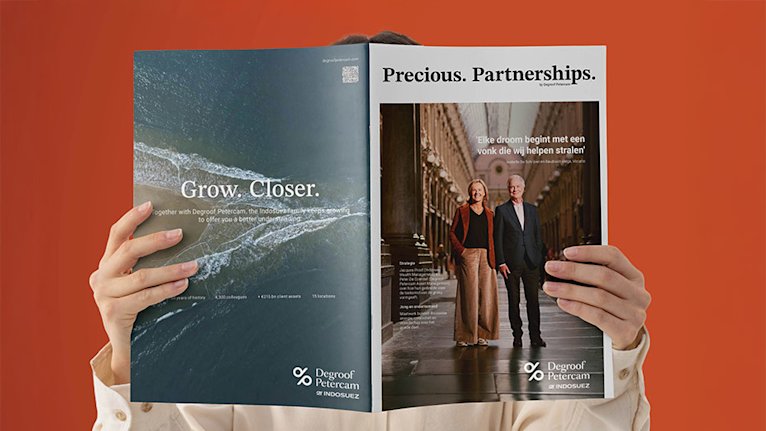29.03.20173 min
The issue of migration
But what’s really going on, when it comes to the European immigration crisis? François Gemenne, Professor of Political Science in Paris and at the ULB in Brussels, is an expert in geopolitics and migration flows. During an event at Bank Degroof Petercam, organised to raise awareness among our colleagues about environmental, social and governance issues, he took stock of the current situation.
Three questions concerning Europe’s immigration crisis
- How do we define migration?
Immigrants, strangers, refugees, etc... Definitions and means of identification may vary from one country to the next. The use of the term ‘crisis’ is due to the explosion in the number of asylum seekers that the OECD countries saw in 2015. In total, there were nearly 1.65 million new applicants, 25% of whom are Syrians and 16% from Afghanistan. However, in terms of the global population, for that same year, nearly 3.3% resided outside of their country of birth, and represent 245 million immigrants. Refugees accounted for less than 10% of this total figure.
- So what’s the economic impact?
This is particularly troublesome to gauge, in that it requires a calculation for the cost of immigration policies, including the period of time in which the calculation was made, the amount of labour required, as well as the increase in consumption due to the presence of immigrants. That said, two repercussions are often overlooked.
First of all, there is the significant import of money sent to family and loved ones abroad on the countries of origin. As a matter of fact, for some economies like that of Morocco, income repatriated to the home country as allowances for family members, etc. may represent a major contribution to the country’s GDP, sometimes up to three times as high as any development aid received. This key resource is a decisive factor in immigration policy and other related policies, such as immigrant voting rights and other similar topics.
What’s more, border surveillance at the EU’s external borders has cost nearly €15 billion since the year 2000. Immigrants themselves have spent nearly €13 billion to cross those borders. That means a total of €28 billion has been lost not only on border protection, but on transgressing them as well!
- What challenge does this represent for a country’s sustainability?
More than once migration has been suggested as the solution to our ageing populations. Indeed, confronted with a population in decline and an increasing ratio of dependence, immigration could very well be a solution.
Hungary is a great example. While the country has border patrols at its Serbian borders, nearly 60% of companies mention experiencing difficulties with recruiting workers, given the declining population and a dependency ratio on the labour force of nearly 47%.
However, this may often be seen as a short to medium term solution. While immigration results in a larger labour force and an upsurge in the number of consumers, fertility rates tend to fall sharply and evolve towards the national average by the second generation of immigrants.
Open mind
Migration flows are expected to rise due to mounting inequalities and climate change. Faced with an ever-widening gap between how migration is perceived and its actual impact, it is essential to assess a country’s openness to immigration and its capacity for integrating these newcomers. Granting of asylum status, integration of immigrants on the labour market, and dependence on repatriated income are all indicators that enable assessment of potential impact from several different points of view.
Migration flows are expected to rise due to mounting inequalities and climate change. Faced with an ever-widening gap between how migration is perceived and its actual impact, it is essential to assess a country’s openness to immigration and its capacity for integrating these newcomers. Granting of asylum status, integration of immigrants on the labour market, and dependence on repatriated income are all indicators that enable assessment of potential impact from several different points of view.
Despite the fall of the Berlin Wall in 1989 having elicited a staunch philosophy of ‘never again a wall’, a quarantine has begun, or rather is underway, across the globe, for instance between the United States and Mexico, but also between Serbia and Hungary, Finland and Russia, and between India and Bangladesh. Keeping an open mind toward this issue, rather than retreating to the refuge of national identity, is likely to remain the best answer available.






